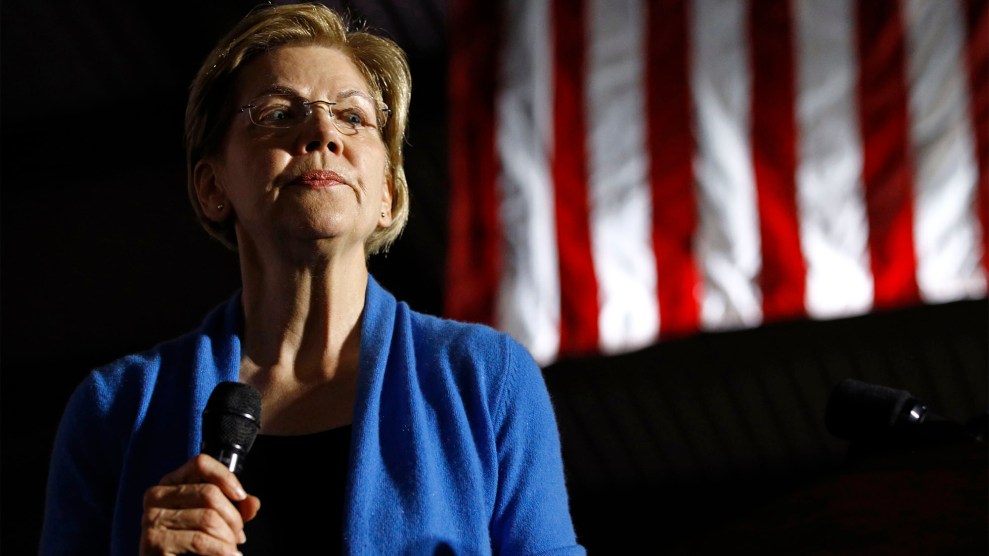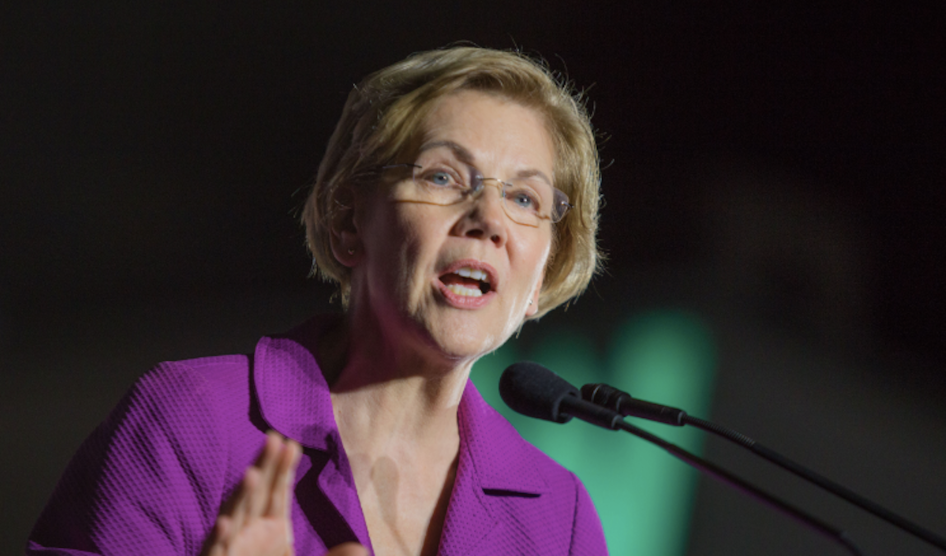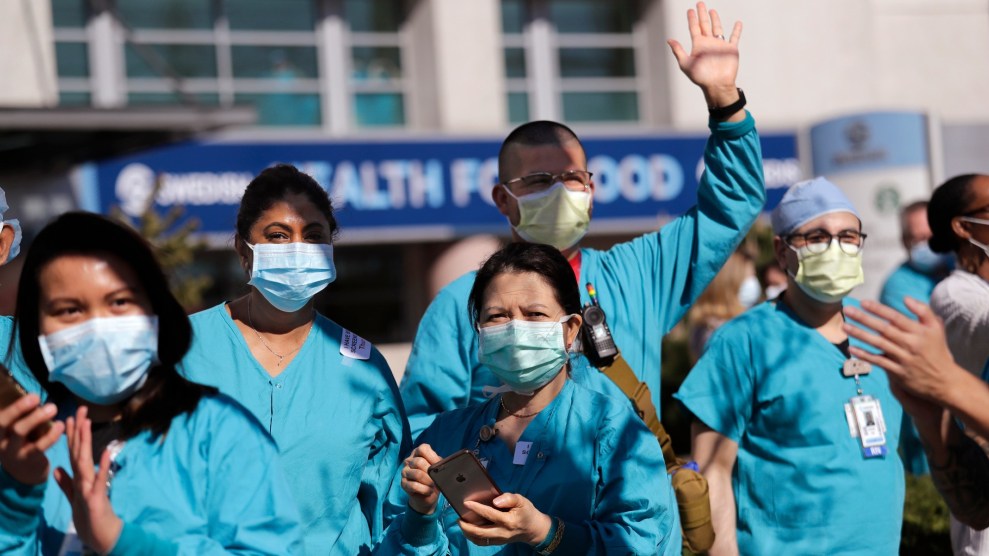
Sen. Elizabeth Warren speaks during a primary night rally, at Eastern Market in Detroit, March 3, 2020. Patrick Semansky/AP
There’s a particularly cruel aspect of the coronavirus pandemic. Patients have suffered, and often died, alone. Their families, meanwhile, have had to grieve in isolation. That reality was underscored by Sen, Elizabeth Warren, who discussed her older brother Donald Reed Herring’s death from COVID-19 with the Atlantic’s Edward-Isaac Dovere.
“It just feels like something that didn’t have to happen,” Warren says. She remembers losing her parents and a beloved aunt in a relatively short span of time years ago, but notes how different this loss feels—and how alone her brother must have been:
And so a little while later I called back, and then I got the news that he had been taken to an emergency room. In any other state of the world, I would have been there with him. We all would have been there with him. And instead he was by himself. I just kept imagining what’s happening to him. Is he afraid? Is he cold? I kept thinking about whether he was cold. There’s no one there to talk to him while he waits for the doctor. There’s no one there to be with him while he receives the news.
“And all I could do would be talk by phone with my brothers,” she adds. “It’s not the same. You need to touch people. We have to hug; we have to be with each other.”
The coronavirus has transformed the grieving process all over the world. Support systems and traditions that have long been the pillars of grief—funerals or memorial services, for example—have broken down in the age of social distancing. Sure, some people have tried. More than 200 people gathered at a funeral in Albany, Georgia, in February. That event was later identified by researchers as a “super spreading event.” By early April, more than 500 people in the county had tested positive for the coronavirus. In late April, New York City Mayor Bill de Blasio broke up a large funeral gathering for a rabbi who had died of the disease.
Given the disastrous federal response to the outbreak, Warren—who’s in the running to become Joe Biden’s vice presidential nominee—is in a unique position. Her personal tragedy is one being shared by millions of potential voters, putting her in a position to maybe, possibly do something.














